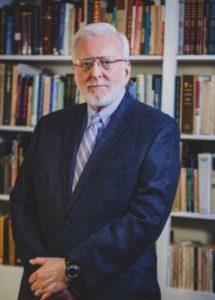
By Solomon D. Stevens
Jabotinsky Day is celebrated as a national holiday in Israel on the 29th of Tammuz, which was July 9 this year. But this is a holiday that should be important to Jews around the world, because Ze’ev Jabotinsky taught an important lesson that Jews should not forget: We need to be prepared to defend ourselves.
It’s simple. The study of Torah is always the most important thing for Jews, but if we cannot defend ourselves, we risk losing the study of Torah. We risk losing our lives as well. As Jabotinsky said in “The Idea of Betar,” the purpose of the Betar group he founded was “to create that type of Jew which the nation needs in order to better and quicker build a Jewish state.” Max Nordau made a similar point, when he discussed the need for “muscular Judaism.” He believed that we needed a “new Jew” who had mental and physical strength in order to serve Zionism. Today we need to remind ourselves of the need for this kind of Jew.
What can we learn from Jabotinsky Day? Jabotinsky, like others of his time including Nordau, developed his perspective on the meaning of Zionism based on the understanding of the pogroms taking place in Russia and elsewhere at the time. The most dramatic of these was, of course, the pogrom in Kishnev in 1903, where 49 Jews were killed, 600 raped or wounded and over 1,500 homes damaged or destroyed.
Kishnev became the event that defined the pogrom, largely because of the famous poem “In the City of Killing,” by the Hebrew poet Hayyim Bialik. In it, he describes the horrors of the attack on innocent Jews in Kishnev, but he also calls attention to the fact that the Jews did not defend themselves. They had not paid enough attention to the rising hatred of Jews and had done nothing to prepare themselves for attacks against them. And when the time came, they failed. He sees them as too passive and therefore easy targets for those who
hate them.
Have the Jews of today’s Diaspora become too passive? Are we doing everything we can to protect ourselves and our heritage? What is normally called antisemitism (Judeophobia) is growing around the world. The Kantor Center of Tel Aviv University determined that there was an 18% increase around the world in violent attacks on Jews last year. Jews are being attacked on the streets and in their synagogues and shuls. And these attacks come unexpectedly and suddenly. No one, for example, would have ever imagined that the Tree of Life synagogue in Pittsburgh was at risk. It is in a quiet, upscale neighborhood, famous for being the home of the late Mr. Rogers. But it was attacked during Shabbat morning services, with 11 people killed and six more wounded. We know this can happen
anywhere today.
We must all be vigilant. We cannot simply take refuge in our jobs, our family and our books and hope that it goes away. We all need to pay increased attention to our well-being and safety, and we need to train to enhance our mental and physical strength, so that we are able to defend ourselves. This does not mean that we should be aggressive
or rude to others or too quick to turn to violence when we feel offended. It doesn’t mean that we should embrace stereotypes of others and assume they mean us harm. Not at all. But it does mean that we need to know how to protect ourselves when necessary. Every synagogue and every shul should teach self-defense.
There is nothing incompatible in loving peace and being able to defend ourselves. Zionism in the Diaspora is more than just having a strong feeling about our connection to Israel. Being a Zionist in the Diaspora also means being mentally and physically strong and knowing how to protect yourself as a Jew wherever you are in the world. By protecting ourselves, our families and communities, we help to pass Torah on to the next generation and create a strong future for Judaism.
Solomon D. Stevens has a Ph.D. in political science from Boston College and is the author of the book, “Challenges to Peace in the Middle East.”





